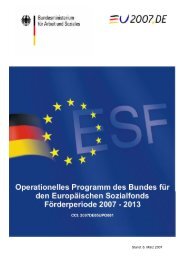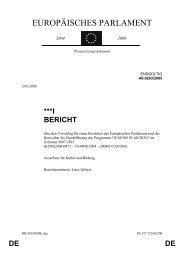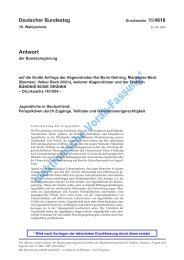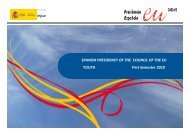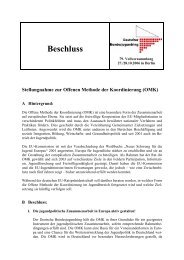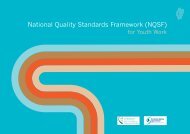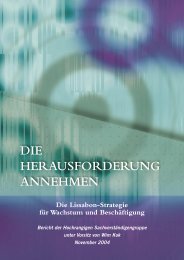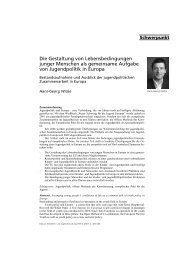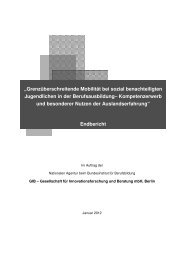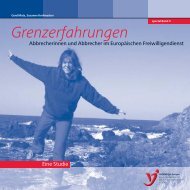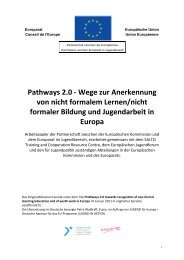Report - Salto
Report - Salto
Report - Salto
You also want an ePaper? Increase the reach of your titles
YUMPU automatically turns print PDFs into web optimized ePapers that Google loves.
16<br />
Bridges for Recognition | Day-by-Day - Programme<br />
The morning of 20th January saw the formal opening of the event and perspectives on recognition<br />
from the European institutions. Koen Lambert of Jint - the Flemish NA (mother organisation of<br />
SALTO Inclusion, the organiser of Bridges) gave a welcome to the city of Leuven and to Bridges<br />
for Recognition before handing over to speakers from the European Commission (p.22), the<br />
Council of Europe (p. 24) and the European Youth Forum (p.26). In addition, the debate<br />
on terminology and concepts of recognition was opened up by Lynne Chisholm of Innsbruck<br />
University (p. 38). And to ensure the whole subject was earthed in reality, Thomas Vollner of YES<br />
Forum relayed the story of Egemen Ozyay, a young EVS participant from Stuttgart, whose life<br />
had drastically changed – to the positive – because of his participation in youth work (p.20).<br />
Before lunch Koen Lambert chaired a panel discussion with representatives of a range of<br />
stakeholder groups. Panel members were: Åsa Fahlgren (Swedish National Agency), Tone<br />
Christensen (Trondheim Municipality, Norway), Clement Dupuis (youth worker at Ici ou<br />
Ailleurs, France), Jillian Hasset-Van Turnhout (European Economic and Social Committee) and<br />
Anthony Azzopardi (Youth Studies, University of Malta). The discussion covered expectations<br />
of the debate about recognition, the role of volunteers in accreditation processes and the<br />
involvement of young people in self assessment. The discussions clearly demonstrated the<br />
different motivations and viewpoints that the various stakeholders have. In particular the<br />
place of young people varied considerably: some saw them as influencers and key stakeholders<br />
of the recognition process, whereas others regarded them as the cause of social problems and<br />
people in need of “help”.<br />
After lunch, Hans-Joachim Schild of the Youth Unit of the DG Education and Culture of the<br />
European Commission gave an overview of previous “milestones in the recognition process”<br />
at the European level (p.28). This served as an introduction to a series of sixteen “Good Practice”<br />
workshops (p.50). These workshops (four running during each of four sessions) provided a<br />
show case for a wide range of recognition work that is already ongoing around Europe. Light<br />
relief was provided in the evening by a city tour of Leuven… in the rain.



